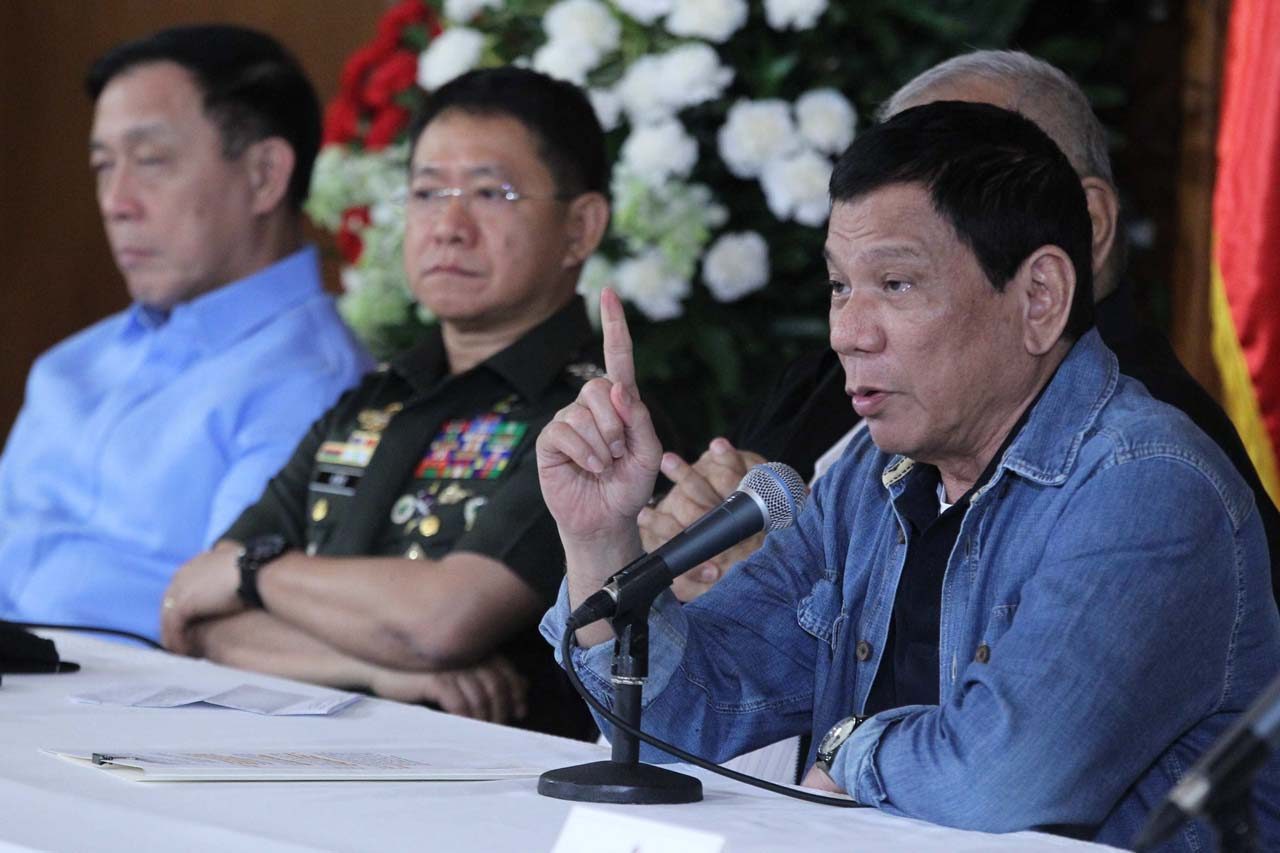SUMMARY
This is AI generated summarization, which may have errors. For context, always refer to the full article.

MANILA, Philippines – President Rodrigo Duterte will soon order soldiers of the Armed Forces of the Philippines (AFP) to arrest corrupt policemen, as part of his administration’s cleansing of the Philippine National Police.
“Let me reorganize the enforcement diyan sa (in the) police. In the meantime, they will be arrested and I will order you to arrest them,” Duterte said in a speech in front of new military officials on Tuesday, January 31.
Immediately after, he said, “Kung hindi ko kayo ipasok sa laro, patay ako. Walang magtingin diyan sa abusadong police.” (If I don’t let you in on this game, I’m dead. No one will check the abusive police.)
Two days earlier, Duterte had stopped the PNP’s enforcement of the anti-illegal drugs campaign after being convinced by the murder of a South Korean businessmen, Jee Ick Joo, that some members of the police force were using his drug war as a cover for crime.
Military in war on drugs
He had said in a Sunday late evening press conference that he would ask military to become more involved in the drug war.
Military personnel do not usually make arrests for drug-related crimes. Law enforcement is usually left to the police so the military can focus on national security.
National Security Adviser Hermogenes Esperon Jr said it’s possible for a unit of the AFP to be “deputized” by the Philippine Drug Enforcement Agency (PDEA) to support anti-drug operations.
“They can arrest if they are part of operations, and if they are deputized by PDEA then why not?” said Esperon in a chance interview after Duterte’s speech.
But Esperon said this is likely to involve only a specific unit of the AFP, not the force as a whole.
He also said the creation of a unit within the military to deal with the drug problem was discussed during the joint command conference last Sunday, January 29.
Earlier on Tuesday, January 31, Presidential Spokesman Ernesto Abella said Duterte floated the idea of reviving the Philippine Constabulary, a law enforcement arm that will be composed of military personnel.
The revived PC is envisioned to take charge of the drug war at the national level, while the PNP will enforce it at the local level.
Prone to corruption
Asked why Duterte appears to trust the military more than the police, Abella said: “I think it’s structural. The way he explains it is this: that the PNP, it’s a more civilian situation, they are more exposed, they have interface with the everyday world while the military is not, and so he is in effect saying that the PNP would be more prone to be corrupted than the military.”
During his speech in front of new military leaders, including AFP chief General Eduardo Año, Duterte emphasized the seriousness of the country’s drug problem.
He was also noticeably more restrained, at first opting to read his prepared speech so as to not “lose control” and say something “discourteous.”
The President said he did not need the military’s loyalty but called on them to be loyal to the country.
“The country needs it badly. Your loyalty to the flag and country is paramount,” he said. – Rappler.com
Add a comment
How does this make you feel?
There are no comments yet. Add your comment to start the conversation.